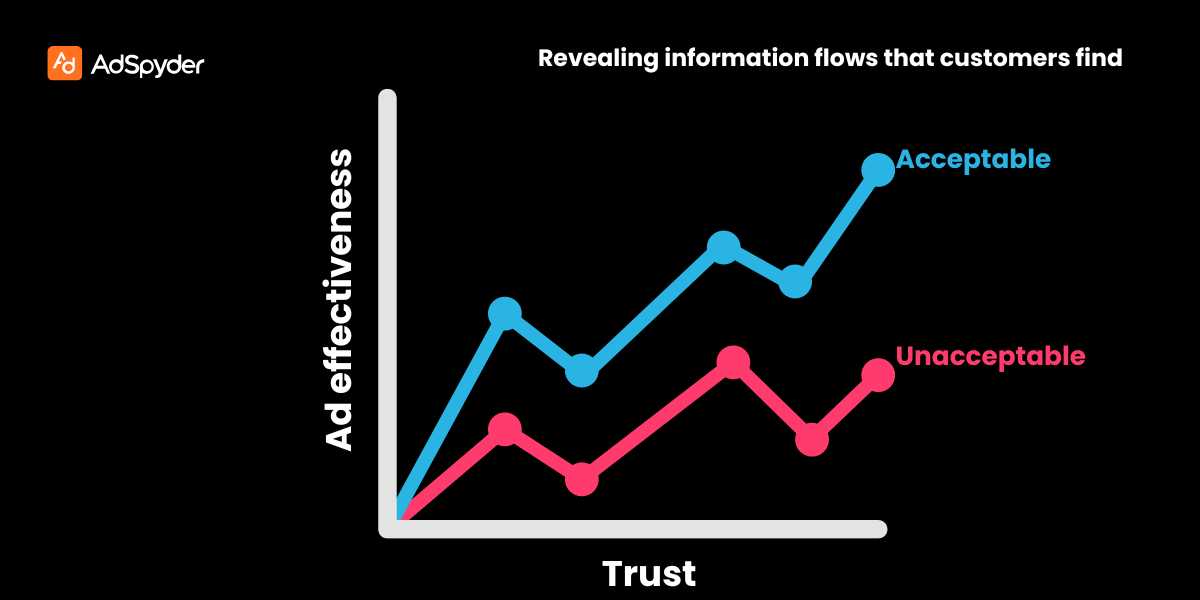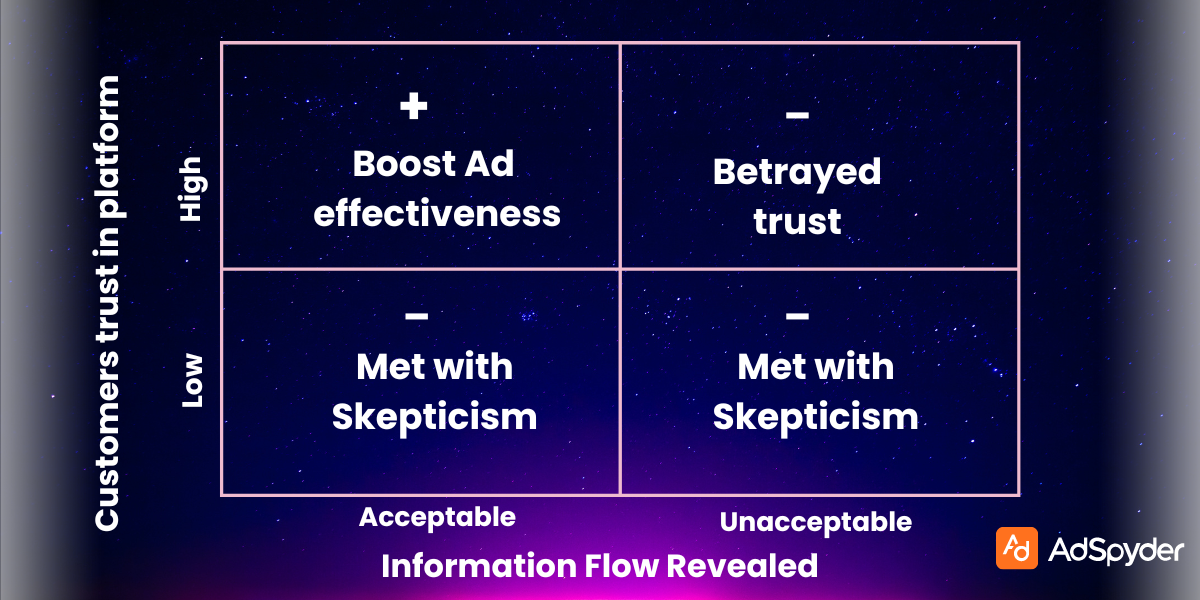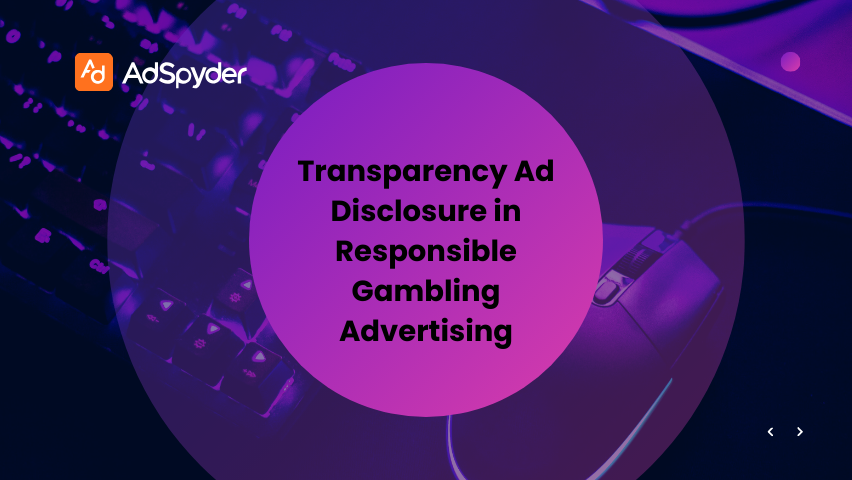Transparency and ad disclosure serve as the cornerstones of responsible gambling advertising. In an industry that attracts a diverse range of users, advertisers must prioritize trustworthiness by crafting clear and honest ad campaigns. In this comprehensive guide, we will delve into the paramount importance of transparent and honest advertisements, the significance of transparently disclosing terms and conditions, the role of presenting responsible gambling information, and the necessity of obtaining user consent and disclosing data collection practices.
Clear and Honest Ad Disclosure
Ad tranparency and Ad platform Trust:

The bedrock of transparency lies in the creation of clear and honest advertisements, including ad disclosure. Advertisers must ensure that their ad content faithfully represents the products or services they offer. The employment of deceptive or misleading tactics, such as concealing vital information or exaggerating claims, can lead to a loss of user trust and a tarnished brand image.
82% of consumers consider transparency regarding the price and terms of a product or service to be essential in building trust.
Avoiding Deceptive or Misleading Practices
Unlocking the Upside of Transparency:

Deceptive practices, such as concealing vital information or exaggerating claims, must be unequivocally avoided, especially in Facebook ad disclosure and Google ad disclosure. Advertisers must adopt a forthright approach, explicitly addressing the limitations and risks associated with gambling activities. This approach empowers users to make informed choices.
74% of consumers believe that companies must be transparent about the origin and production methods of their products.
Check out: Responsible Gambling Advertising: A Comprehensive Guide to Ethical Practices
Disclosure of Terms and Conditions
The transparent disclosure of terms and conditions, including ad transparency in betting, stands as a pivotal facet of responsible gambling advertising. Users should have ready access to comprehensible terms and conditions concerning promotions, bonuses, and other offers. This ensures that users are well-informed about any prerequisites or restrictions before engaging with the advertised content.
68% of consumers emphasize the importance of clear disclosure of charges in building trust.
Making Disclosures Accessible and Understandable
Merely providing terms and conditions is insufficient; they must be presented in a manner that is accessible and comprehensible to users, avoiding complex jargon. Advertisers can employ plain language to ensure that users can easily grasp the information presented without any confusion.
73% of consumers contend that complete transparency in business practices results in heightened trust.
Displaying Responsible Gambling Information
Incorporating responsible gambling messages into ad campaigns underscores the advertiser’s unwavering commitment to promoting responsible gambling behavior. Advertisements should encompass information concerning the risks of gambling, helpline numbers for problem gamblers, and resources for seeking assistance and support.
78% of consumers assert that gambling ads should incorporate responsible gambling messages.
Demonstrating Commitment to Responsible Advertising Practices
The inclusion of responsible gambling information not only empowers users to make informed choices but also demonstrates the advertiser’s dedication to responsible advertising practices. This not only cultivates a positive brand image but also attracts users who prioritize responsible gambling.
88% of U.S. marketers have reported experiencing measurable improvements because of personalization, with over half reporting a boost greater than 10%.
User Consent and Data Collection Disclosure
User consent plays a pivotal role when collecting data for ad targeting purposes, including ad transparency. Advertisers must obtain explicit consent from users before collecting any personal information, coupled with transparently informing users about how their data will be employed in ad campaigns.
91% of consumers exhibit a greater inclination to shop with brands that furnish personalized offers and recommendations.
Informing Users about Data Usage
Besides obtaining consent, advertisers should provide users with clear and concise information regarding data usage. Users must have a comprehensive understanding of how their data will be utilized to deliver personalized ads while simultaneously being assured of their privacy protection.
86% of consumers assert that transparency from businesses has assumed heightened importance.
Conclusion
Transparency and disclosure occupy a paramount position in gambling advertising campaigns. By fashioning clear and honest advertisements, transparently disclosing terms and conditions, integrating responsible gambling information, and diligently obtaining user consent for data collection while ensuring transparent data usage disclosures, advertisers can forge trust with their audience and champion responsible gambling practices. Advertisers who prioritize transparency and responsible advertising are more likely to attract and retain users who value ethical and transparent business practices, ultimately contributing to a more sustainable and reputable gambling industry.



